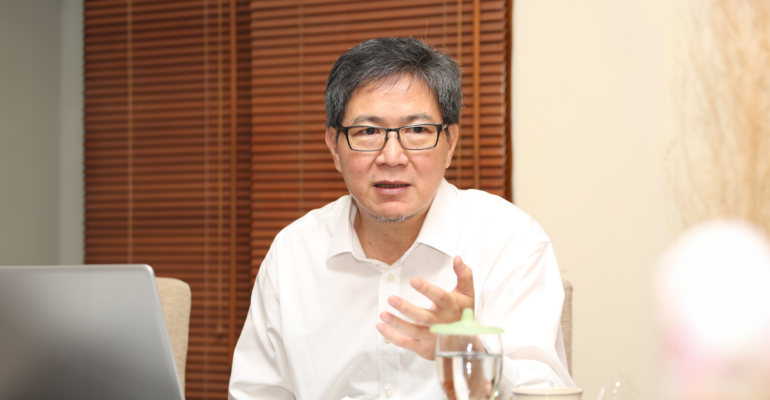IPB University Livestock Breeding Expert: Australia Enthusiastic about Free Nutritious Meal Programme

No country was happier than Australia when it heard that it would be implementing a free lunch and milk programme. The programme, which has just been renamed the free nutritious meal programme, was also commented on by IPB University Livestock Breeding Expert, Prof Ronny Rachman Noor.
“Currently, this programme is a hot topic among Australian livestock industry players. The reason is that Australia is very capable of supplying milk and meat for the purposes of this programme,” he said.
“Dairy industry players in Australia have started to react and prepare themselves to capture a very significant opportunity that will have a big impact on Australian farmers,” added Prof Ronny.
According to Prof Ronny, this enthusiasm is considered very reasonable because Australia has long been a major supplier of milk and meat to Indonesia. This is because the livestock industry there is very well established to produce milk and meat in large quantities and sustainably.
“If calculated in business terms, the free school lunch and milk programme that reaches 83 million students is expected to start next year and will cost Rp120 trillion,” he said.
In this situation, Prof Ronny explained, Australia has already begun to take steps to work with the new Indonesian government to meet the meat and milk needs to implement this programme.
According to the lecturer at the Faculty of Animal Science at IPB University, if analysed technically, the programme would most likely start with importing dairy cows. This is because, for at least one year, Indonesia will not be able to fulfil its milk needs in large quantities. “This is because dairy cows must be pregnant and produce children first before they can produce milk,” he said.
In addition, the preparation of milk processing infrastructure must also be prepared massively. Therefore, it makes sense that dairy businesses in Australia have anticipated the need for a very large amount of milk powder and UHT milk.
“Although Indonesia’s milk consumption per capita is very small compared to Australia (Indonesia 15 litres per year vs Australia 300 litres per year), currently Australia is one of the largest milk supplier countries for Indonesia as well as the third largest milk export market for Australia with a value of at least Rp1,382,292,000,000 per year,” Prof Ronny said.
In addition to milk, Indonesia has long imported large quantities of meat from Australia. Not only live cattle, Prof Ronny said, Indonesia is also a recorded importer of frozen meat and offal from Australia. Indonesia is Australia’s number 1 customer for offal (lungs, tongue and heart).
“As an illustration, each year Indonesia imports an average of 500,000 cattle to Indonesia with a value of Rp10,718,060,000,000. For Australia, the proportion of meat exports to Indonesia reaches 40 per cent of the total value of its meat exports,” Prof Ronny explained.
According to him, Indonesia is a gold mine for Australia because the marketing of offal is very strict there. Moreover, most of these offal are prohibited from being marketed in Australia to prevent the spread of disease. By exporting these offal, Australia reaps huge profits as offal does not compete with Australia’s domestic demand.
“With the world’s fourth-largest population, Indonesia’s demand for meat and milk is huge and has yet to be met by domestic meat and milk production. Therefore, as one of the world’s largest dairy and meat producing countries, Australia is very interested in capturing the great opportunity of this free lunch and milk programme,” explained Prof Ronny.
“So it is no wonder that Australia is the most excited and enthusiastic about this free lunch and milk programme, because it is certain that this will stimulate the Australian livestock industry,” concluded Prof Ronny. (*/Rz) (IAAS/RUM)



